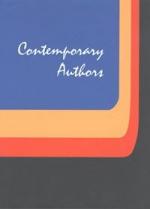|
This section contains 1,729 words (approx. 6 pages at 300 words per page) |

|
SOURCE: "Wilfred Owen's 'The Letter' and the Truth of War," in English Language Notes, March, 1994, pp. 59-66.
In the following excerpt, Graves focuses on the issues of wartime censorship and propaganda revealed in Owen's "The Letter. "
As an officer at the front editing soldiers' letters home, [Wilfred] Owen acted as a cog in the British propaganda machine during World War I. British propaganda, and the subsequent censorship of wartime correspondence, hoped to serve two purposes: first, to insure national security in Britain, and second, to keep up morale on the homefront by sheltering civilian sensibilities from the devastation on the Western Front. As Owen reveals in his poem "The Letter," however, wartime censorship and propaganda, and the sense of patriotism which encouraged both, accomplished neither. Instead, they distanced the soldiers witnessing the atrocities of the Western Front from civilian England, just seventy miles away, and they offered a...
|
This section contains 1,729 words (approx. 6 pages at 300 words per page) |

|


